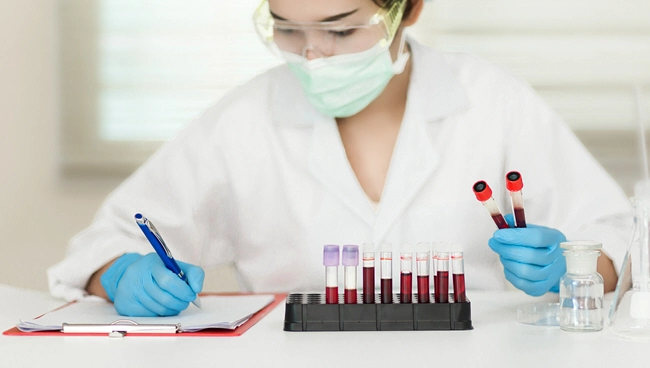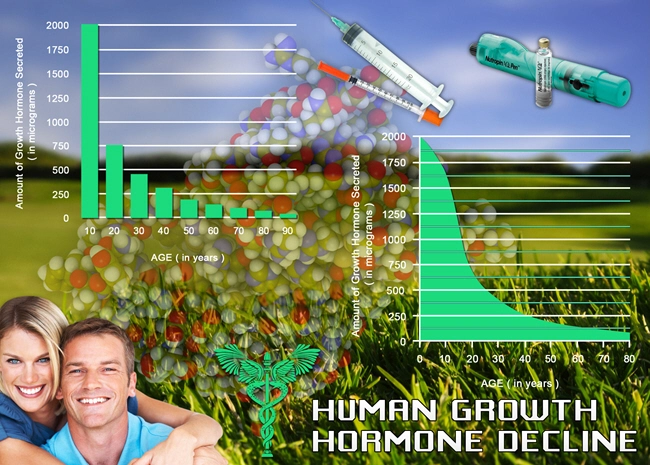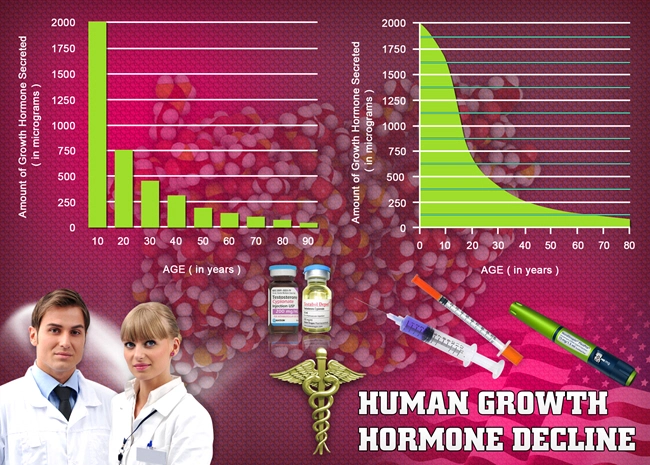
Introduction
Anemia, characterized by a deficiency in red blood cells or hemoglobin, can significantly impact quality of life, particularly in individuals with growth hormone deficiency (GHD). Norditropin, a recombinant human growth hormone, has been recognized for its role in treating GHD. Recent studies suggest that Norditropin may also offer benefits in reducing anemia in this population. This article delves into the potential advantages of Norditropin for American men suffering from GHD and anemia, highlighting its mechanisms and clinical outcomes.
Understanding Growth Hormone Deficiency and Anemia
Growth hormone deficiency in adults can lead to a variety of symptoms, including reduced muscle mass, increased fat mass, and decreased bone density. Additionally, GHD can contribute to anemia, a condition where the body lacks enough healthy red blood cells to carry adequate oxygen to the body's tissues. Anemia in GHD patients may be due to decreased erythropoiesis, the process by which red blood cells are produced.
Norditropin: A Therapeutic Overview
Norditropin is a bioidentical growth hormone used to treat children and adults with growth hormone deficiency. Administered via subcutaneous injection, it mimics the natural growth hormone produced by the pituitary gland. Its primary function is to stimulate growth, cell reproduction, and regeneration in humans.
Mechanisms of Norditropin in Reducing Anemia
Research indicates that Norditropin may enhance erythropoiesis, thereby increasing the production of red blood cells. This effect is thought to be mediated through the stimulation of insulin-like growth factor-1 (IGF-1), which has been shown to promote erythropoiesis. By increasing IGF-1 levels, Norditropin can potentially improve hemoglobin levels and alleviate anemia in GHD patients.
Clinical Evidence Supporting Norditropin's Role in Anemia Reduction
Several clinical studies have explored the impact of Norditropin on anemia in GHD patients. A notable study published in the *Journal of Clinical Endocrinology & Metabolism* found that treatment with Norditropin significantly increased hemoglobin levels in GHD adults. Participants in the study experienced a mean increase in hemoglobin of 1.2 g/dL after six months of therapy, suggesting a direct benefit in combating anemia.
Another study conducted at a major American medical center observed similar results, with GHD men showing improved red blood cell counts and reduced symptoms of anemia following Norditropin treatment. These findings underscore the potential of Norditropin as a dual-purpose therapy for GHD and associated anemia.
Practical Considerations for American Men
For American men diagnosed with GHD and anemia, Norditropin offers a promising treatment option. It is crucial, however, to consult with a healthcare provider to determine the appropriateness of Norditropin therapy. Factors such as the severity of GHD, the presence of other medical conditions, and individual response to treatment should be considered.
Side Effects and Monitoring
While Norditropin is generally well-tolerated, potential side effects include injection site reactions, joint and muscle pain, and fluid retention. Regular monitoring of blood work, including hemoglobin and IGF-1 levels, is essential to ensure the safety and efficacy of the treatment. Patients should work closely with their healthcare providers to adjust dosages and manage any adverse effects.
Conclusion
Norditropin represents a significant advancement in the management of growth hormone deficiency and its associated conditions, such as anemia. For American men grappling with these health challenges, Norditropin offers a beacon of hope, potentially improving their quality of life through enhanced erythropoiesis and increased hemoglobin levels. As research continues to evolve, the role of Norditropin in treating anemia in GHD patients is likely to become even more defined, offering new avenues for personalized and effective care.
Contact Us Today For A Free Consultation
Dear Patient,
Once you have completing the above contact form, for security purposes and confirmation, please confirm your information by calling us.
Please call now: 1-800-380-5339.
Welcoming You To Our Clinic, Professor Tom Henderson.

- Norditropin: Enhancing Growth and Quality of Life in American Males with GH Deficiency [Last Updated On: March 3rd, 2025] [Originally Added On: March 3rd, 2025]
- Exploring the Impact of Norditropin Therapy on Metabolic Syndrome in American Males: A Comprehensive Analysis [Last Updated On: March 10th, 2025] [Originally Added On: March 10th, 2025]
- Norditropin: A Vital Tool in Addressing Growth Hormone Deficiency in Males with Prader-Willi Syndrome [Last Updated On: March 15th, 2025] [Originally Added On: March 15th, 2025]
- Exploring the Impact of Norditropin on Lipid Profiles in Men with Growth Hormone Deficiency [Last Updated On: March 15th, 2025] [Originally Added On: March 15th, 2025]
- Exploring the Efficacy of Norditropin in Treating Growth Hormone Deficiency Amid Gastrointestinal Challenges [Last Updated On: March 16th, 2025] [Originally Added On: March 16th, 2025]
- Enhancing Eye Health with Norditropin in Growth Hormone Deficient American Males [Last Updated On: March 16th, 2025] [Originally Added On: March 16th, 2025]
- Exploring the Impact of Norditropin on Thyroid Function in American Males with Growth Hormone Deficiency [Last Updated On: March 16th, 2025] [Originally Added On: March 16th, 2025]
- Norditropin: Enhancing Quality of Life in Elderly Men Through Growth Hormone Therapy [Last Updated On: March 16th, 2025] [Originally Added On: March 16th, 2025]
- Exploring the Impact of Norditropin on Urinary System Health in Men with Growth Hormone Deficiency [Last Updated On: March 16th, 2025] [Originally Added On: March 16th, 2025]
- Norditropin's Long-Term Safety for Growth Hormone Deficiency in American Males [Last Updated On: March 16th, 2025] [Originally Added On: March 16th, 2025]
- Norditropin Enhances Cognitive Function in American Males with Growth Hormone Deficiency [Last Updated On: March 17th, 2025] [Originally Added On: March 17th, 2025]
- Norditropin and Combination Therapies for Growth Hormone Deficiency in American Males [Last Updated On: March 18th, 2025] [Originally Added On: March 18th, 2025]
- Norditropin: Enhancing Energy and Vitality in American Men with Growth Hormone Deficiency [Last Updated On: March 18th, 2025] [Originally Added On: March 18th, 2025]
- Norditropin Therapy Enhances Skin Health in American Males with Growth Hormone Deficiency [Last Updated On: March 18th, 2025] [Originally Added On: March 18th, 2025]
- Norditropin Enhances Immune Function in American Men with Growth Hormone Deficiency [Last Updated On: March 18th, 2025] [Originally Added On: March 18th, 2025]
- Norditropin's Impact on Sleep Patterns in American Males with Growth Hormone Deficiency [Last Updated On: March 20th, 2025] [Originally Added On: March 20th, 2025]
- Norditropin Enhances Wound Healing in American Males with Growth Hormone Deficiency [Last Updated On: March 21st, 2025] [Originally Added On: March 21st, 2025]
- Norditropin Enhances Insulin Sensitivity in American Males with Growth Hormone Deficiency [Last Updated On: March 21st, 2025] [Originally Added On: March 21st, 2025]
- Norditropin Enhances Fertility in Men with Growth Hormone Deficiency: A Comprehensive Overview [Last Updated On: March 21st, 2025] [Originally Added On: March 21st, 2025]
- Norditropin Enhances Mood in American Men with Growth Hormone Deficiency [Last Updated On: March 22nd, 2025] [Originally Added On: March 22nd, 2025]
- Norditropin Therapy for Growth Hormone Deficiency in Male Cancer Survivors: Benefits and Considerations [Last Updated On: March 22nd, 2025] [Originally Added On: March 22nd, 2025]
- Norditropin's Potential to Enhance Hair Growth in American Men with GHD [Last Updated On: March 22nd, 2025] [Originally Added On: March 22nd, 2025]
- Norditropin: Enhancing Exercise and Quality of Life in American Males with GHD [Last Updated On: March 22nd, 2025] [Originally Added On: March 22nd, 2025]
- Norditropin: Enhancing Growth and Reducing Allergies in American Males with GHD [Last Updated On: March 23rd, 2025] [Originally Added On: March 23rd, 2025]
- Norditropin's Effects on Hearing in American Men with Growth Hormone Deficiency [Last Updated On: March 23rd, 2025] [Originally Added On: March 23rd, 2025]
- Norditropin's Impact on Digestive Health in American Males with Growth Hormone Deficiency [Last Updated On: March 23rd, 2025] [Originally Added On: March 23rd, 2025]
- Norditropin Therapy in American Males: Effects on Kidney Function and Monitoring Needs [Last Updated On: March 23rd, 2025] [Originally Added On: March 23rd, 2025]
- Norditropin Enhances Memory in American Males with Growth Hormone Deficiency: Clinical Insights [Last Updated On: March 23rd, 2025] [Originally Added On: March 23rd, 2025]
- Norditropin's Impact on Joint Health in American Males with Growth Hormone Deficiency [Last Updated On: March 24th, 2025] [Originally Added On: March 24th, 2025]
- Norditropin's Impact on Thyroid Function in American Men with Growth Hormone Deficiency [Last Updated On: March 24th, 2025] [Originally Added On: March 24th, 2025]
- Norditropin Therapy in American Males: Balancing Growth Benefits with Adrenal Health Monitoring [Last Updated On: March 24th, 2025] [Originally Added On: March 24th, 2025]
- Norditropin Enhances Cardiovascular Health in American Men with Growth Hormone Deficiency [Last Updated On: March 24th, 2025] [Originally Added On: March 24th, 2025]
- Norditropin: Effective GHD Treatment in Males with Gastrointestinal Disorders [Last Updated On: March 24th, 2025] [Originally Added On: March 24th, 2025]
- Norditropin: Treating Growth Hormone Deficiency and Reducing Anxiety in American Males [Last Updated On: March 24th, 2025] [Originally Added On: March 24th, 2025]
- Norditropin: Enhancing Skin Elasticity and Well-being in American Males with GHD [Last Updated On: March 24th, 2025] [Originally Added On: March 24th, 2025]
- Norditropin Enhances Respiratory Function in American Males with Growth Hormone Deficiency [Last Updated On: March 24th, 2025] [Originally Added On: March 24th, 2025]
- Norditropin's Role in Reducing Inflammation for American Males with Growth Hormone Deficiency [Last Updated On: March 25th, 2025] [Originally Added On: March 25th, 2025]
- Norditropin Therapy Enhances Dental Health in American Males with GHD: A Review [Last Updated On: March 25th, 2025] [Originally Added On: March 25th, 2025]
- Norditropin's Potential in Reducing Migraines for American Males with GHD: A Review [Last Updated On: March 25th, 2025] [Originally Added On: March 25th, 2025]
- Norditropin's Potential to Alleviate Pain in Growth Hormone Deficient American Males [Last Updated On: March 25th, 2025] [Originally Added On: March 25th, 2025]
- Norditropin Enhances Vision in Males with Growth Hormone Deficiency: Clinical Insights [Last Updated On: March 25th, 2025] [Originally Added On: March 25th, 2025]
- Norditropin: Advancing GHD Treatment in Neurological Disorder Patients [Last Updated On: March 25th, 2025] [Originally Added On: March 25th, 2025]
- Norditropin: A Targeted Therapy for Growth Hormone Deficiency with Autoimmune Disorders [Last Updated On: March 25th, 2025] [Originally Added On: March 25th, 2025]
- Norditropin's Potential in Reducing Osteoporosis Risk in American Males with GHD [Last Updated On: March 25th, 2025] [Originally Added On: March 25th, 2025]
- Norditropin's Potential in Reducing Depression Among American Men with GHD [Last Updated On: March 25th, 2025] [Originally Added On: March 25th, 2025]
- Norditropin Enhances Liver Function in American Males with Growth Hormone Deficiency [Last Updated On: March 25th, 2025] [Originally Added On: March 25th, 2025]
- Norditropin's Impact on Appetite and Weight in American Males with GHD [Last Updated On: March 26th, 2025] [Originally Added On: March 26th, 2025]
- Norditropin Therapy Enhances Sexual Health in American Males with Growth Hormone Deficiency [Last Updated On: March 26th, 2025] [Originally Added On: March 26th, 2025]
- Norditropin Enhances Balance and Coordination in Growth Hormone Deficient American Men [Last Updated On: March 27th, 2025] [Originally Added On: March 27th, 2025]
- Norditropin's Potential to Reduce Ear Infections in American Males with GHD [Last Updated On: March 27th, 2025] [Originally Added On: March 27th, 2025]
- Norditropin Therapy Enhances Muscle Health in American Males with GHD [Last Updated On: March 28th, 2025] [Originally Added On: March 28th, 2025]
- Norditropin Enhances Eye Health in American Males with Growth Hormone Deficiency [Last Updated On: March 28th, 2025] [Originally Added On: March 28th, 2025]
- Norditropin Therapy Enhances Nail Health in American Men with Growth Hormone Deficiency [Last Updated On: March 28th, 2025] [Originally Added On: March 28th, 2025]
- Norditropin's Cardiovascular Benefits for Growth Hormone Deficient American Males [Last Updated On: March 28th, 2025] [Originally Added On: March 28th, 2025]
- Norditropin Therapy Enhances Hair Quality in American Men with Growth Hormone Deficiency [Last Updated On: March 29th, 2025] [Originally Added On: March 29th, 2025]
- Norditropin's Potential in Reducing Sinus Issues for American Males with GHD [Last Updated On: March 29th, 2025] [Originally Added On: March 29th, 2025]
- Norditropin's Impact on Nasal Health in American Men with Growth Hormone Deficiency [Last Updated On: March 30th, 2025] [Originally Added On: March 30th, 2025]
- Norditropin Therapy's Impact on Throat Health in American Males with GHD [Last Updated On: March 30th, 2025] [Originally Added On: March 30th, 2025]
- Norditropin Enhances Respiratory Function in Growth Hormone Deficient Patients [Last Updated On: March 30th, 2025] [Originally Added On: March 30th, 2025]
- Norditropin Enhances Lung Function in Growth Hormone Deficient Males: Clinical Insights [Last Updated On: March 31st, 2025] [Originally Added On: March 31st, 2025]
- Norditropin Therapy Enhances Vascular Health in Men with Growth Hormone Deficiency [Last Updated On: April 1st, 2025] [Originally Added On: April 1st, 2025]
- Norditropin Enhances Blood Health in American Men with Growth Hormone Deficiency [Last Updated On: April 1st, 2025] [Originally Added On: April 1st, 2025]
- Norditropin's Impact on Lymphatic Health in American Males with Growth Hormone Deficiency [Last Updated On: April 3rd, 2025] [Originally Added On: April 3rd, 2025]
- Norditropin: Enhancing Muscle, Reducing Fat, and Boosting Energy in Males with GHD [Last Updated On: April 5th, 2025] [Originally Added On: April 5th, 2025]
- Norditropin: Managing Growth Hormone Deficiency in American Males with Allergies [Last Updated On: April 6th, 2025] [Originally Added On: April 6th, 2025]
- Norditropin Therapy Enhances Immune Function in American Males with Growth Hormone Deficiency [Last Updated On: April 7th, 2025] [Originally Added On: April 7th, 2025]
- Norditropin Therapy Enhances Musculoskeletal Health in American Males with GHD [Last Updated On: April 8th, 2025] [Originally Added On: April 8th, 2025]
- Norditropin's Impact on Nervous System Health in American Men with GHD [Last Updated On: April 10th, 2025] [Originally Added On: April 10th, 2025]
- Norditropin's Potential in Treating GHD and Autoimmune Diseases in American Males [Last Updated On: April 10th, 2025] [Originally Added On: April 10th, 2025]
- Norditropin's Potential in Managing GI Disorders in American Males with GHD [Last Updated On: April 10th, 2025] [Originally Added On: April 10th, 2025]
- Norditropin: Enhancing Digestive Health in American Men with Growth Hormone Deficiency [Last Updated On: April 10th, 2025] [Originally Added On: April 10th, 2025]
- Norditropin Therapy Enhances Reproductive Health in American Males with GHD [Last Updated On: April 11th, 2025] [Originally Added On: April 11th, 2025]
- Norditropin's Effects on Urinary Health in American Men with GHD [Last Updated On: April 13th, 2025] [Originally Added On: April 13th, 2025]
- Norditropin's Potential in Enhancing Skin Health for American Males with GHD [Last Updated On: April 14th, 2025] [Originally Added On: April 14th, 2025]
- Norditropin: Treating Growth Hormone Deficiency and Skin Disorders in American Males [Last Updated On: April 14th, 2025] [Originally Added On: April 14th, 2025]









